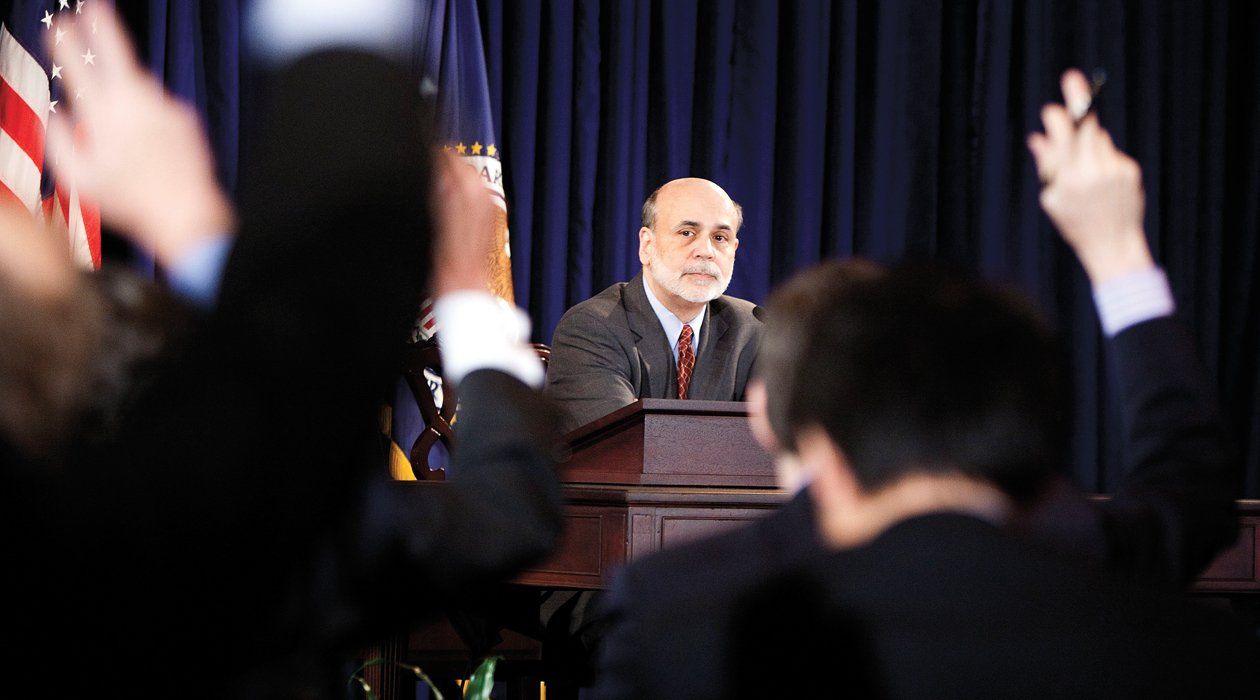
"I can't eat an iPad." This could go down in history as the line that launched the great inflation of the 2010s.
Back in March, the president of the New York Federal Reserve, William Dudley, was trying to explain to the citizens of Queens, N.Y., why they had no cause to worry about inflation. Dudley, a former chief economist at Goldman Sachs, put it this way: "Today you can buy an iPad 2 that costs the same as an iPad 1 that is twice as powerful. You have to look at the prices of all things." Quick as a flash came a voice from the audience: "I can't eat an iPad."
Dudley's boss, Ben Bernanke, was more tactful in his first-ever press conference on Wednesday of last week. But he didn't succeed in narrowing the gap between the Fed's view of inflation and the public's.
I respect Bernanke. As an expert on the financial history of the 1930s, he was one of the very few people in power back in 2008 who grasped how close we were to another Great Depression. But if we've avoided rerunning the 1930s only to end up with a repeat of the 1970s, the public will judge him to have failed.
To this, the Fed has a stock response. It points to the all-urban consumer price index (CPI-U) and notes that it was up only 2.7 percent in March relative to the same month a year earlier. Strip out the costs of food and energy, and "core CPI"—the Fed's preferred measure—is just 1.2 percent. When Google unveils its new index of online prices, it's likely to tell a similar story.
To ordinary Americans, however, it's not the online price of an iPad that matters; it's prices of food on the shelf and gasoline at the pump. These, after all, are the costs they encounter most frequently. And with average gas prices hitting $3.88 a gallon last week, filling up is now twice as painful as when President Obama took office.
Sensing a threat to his hopes of reelection, the president last week called on Congress to eliminate "unwarranted" tax breaks for oil companies and set up a Justice Department task force to investigate price gouging and fraud in the oil markets. Give me a break. The spike in gas prices is the result of Fed policy, which has increased the monetary base threefold in as many years, and a geopolitical crisis in the Middle East that the president and his advisers still haven't gotten a handle on.
And the reason the CPI is losing credibility is that, as economist John Williams tirelessly points out, it's a bogus index. The way inflation is calculated by the Bureau of Labor Statistics has been "improved" 24 times since 1978. If the old methods were still used, the CPI would actually be 10 percent. Yes, folks, double-digit inflation is back. Pretty soon you'll be able to figure out the real inflation rate just by moving the decimal point in the core CPI one place to the right.
It's not only the BLS that speaks with a forked tongue. Members of the Council on Foreign Relations last week heard Treasury Secretary Tim Geithner say: "Our policy has been and will always be…that a strong dollar is in the interest of the country." Fact: the dollar has depreciated relative to other currencies by 17 percent since 2009. That European vacation is going to cost nearly a fifth more than you anticipated when you booked the flights a year ago.
I grew up in the 1970s. My first-ever publication, when I was 10, was a letter to the Glasgow Herald lamenting the soaring price of school shoes (I genuinely thought my feet were growing too fast). I wrote my Ph.D. dissertation about German hyperinflation. So perhaps I'm also hypersensitive. Maybe in June, when the Fed stops quantitative easing (its program of injecting cash by buying government bonds), inflation will recede. Maybe high fuel prices will, as Goldman Sachs predicts, slow the economy and revive the specter of deflation.
Maybe. Or maybe inflation expectations started shifting when the guy from Goldman—a Marie Antoinette for our times—seemed to say: let them eat iPads!
Uncommon Knowledge
Newsweek is committed to challenging conventional wisdom and finding connections in the search for common ground.
Newsweek is committed to challenging conventional wisdom and finding connections in the search for common ground.
About the writer
To read how Newsweek uses AI as a newsroom tool, Click here.








